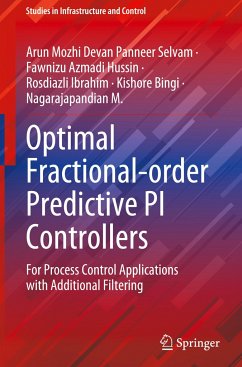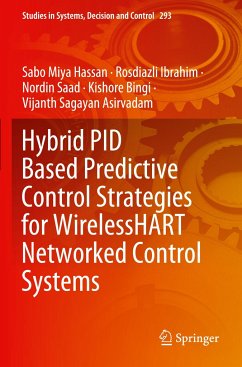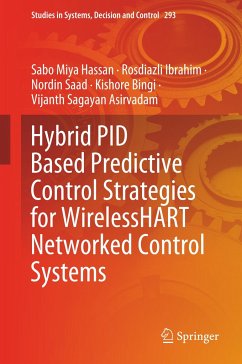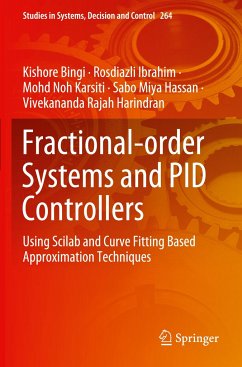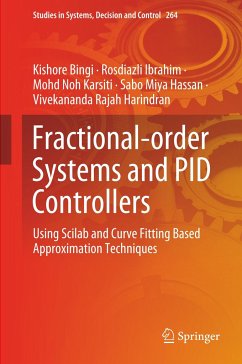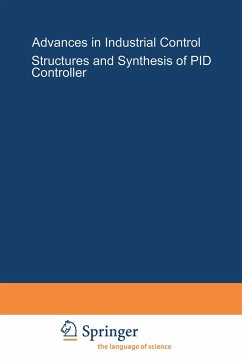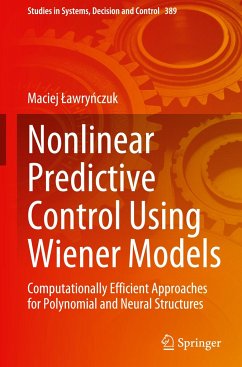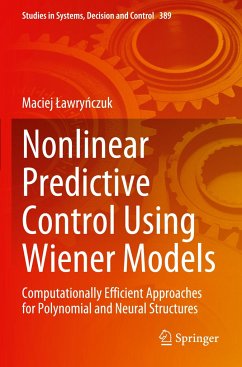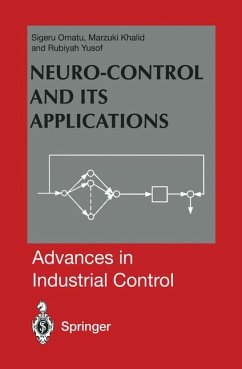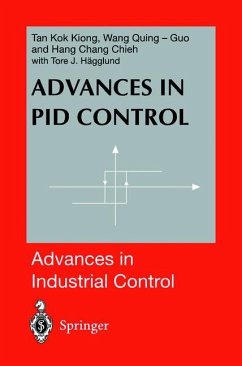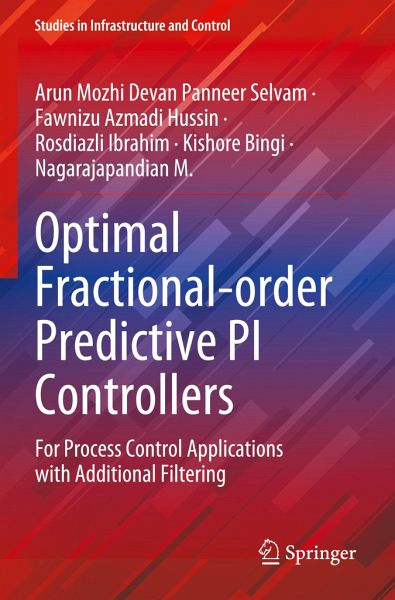
Optimal Fractional-order Predictive PI Controllers
For Process Control Applications with Additional Filtering
Versandkostenfrei!
Versandfertig in 6-10 Tagen
98,99 €
inkl. MwSt.
Weitere Ausgaben:

PAYBACK Punkte
49 °P sammeln!
This book presents the study to design, develop, and implement improved PI control techniques using dead-time compensation, structure enhancements, learning functions and fractional ordering parameters. Two fractional-order PI controllers are proposed and designed: fractional-order predictive PI and hybrid iterative learning based fractional-order predictive PI controller. Furthermore, the proposed fractional-order control strategies and filters are simulated over first- and second-order benchmark process models and further validated using the real-time experimentation of the pilot pressure pr...
This book presents the study to design, develop, and implement improved PI control techniques using dead-time compensation, structure enhancements, learning functions and fractional ordering parameters. Two fractional-order PI controllers are proposed and designed: fractional-order predictive PI and hybrid iterative learning based fractional-order predictive PI controller. Furthermore, the proposed fractional-order control strategies and filters are simulated over first- and second-order benchmark process models and further validated using the real-time experimentation of the pilot pressure process plant.
In this book, five chapters are structured with a proper sequential flow of details to provide a better understanding for the readers. A general introduction to the controllers, filters and optimization techniques is presented in Chapter 1. Reviews of the PI controllers family and their modifications are shown in the initial part of Chapter 2, followed by the development of the proposed fractional-order predictive PI (FOPPI) controller with dead-time compensation ability. In the first part of chapter 3, a review of the PI based iterative learning controllers, modified structures of the ILC and their modifications are presented. Then, the design of the proposed hybrid iterative learning controller-based fractional-order predictive PI controller based on the current cyclic feedback structure is presented. Lastly, the results and discussion of the proposed controller on benchmark process models and the real-time experimentation of the pilot pressure process plant are given. Chapter 4 presents the development of the proposed filtering techniques and their performance comparison with the conventional methods. Chapter 5 proposes the improvement of the existing sine cosine algorithm (SCA) and arithmetic optimization algorithm (AOA) to form a novel arithmetic-trigonometric optimization algorithm (ATOA) to accelerate the rate of convergence in lesseriterations with mitigation towards getting caught in the same local position. The performance analysis of the optimization algorithm will be carried out on benchmark test functions and the real-time pressure process plant.
In this book, five chapters are structured with a proper sequential flow of details to provide a better understanding for the readers. A general introduction to the controllers, filters and optimization techniques is presented in Chapter 1. Reviews of the PI controllers family and their modifications are shown in the initial part of Chapter 2, followed by the development of the proposed fractional-order predictive PI (FOPPI) controller with dead-time compensation ability. In the first part of chapter 3, a review of the PI based iterative learning controllers, modified structures of the ILC and their modifications are presented. Then, the design of the proposed hybrid iterative learning controller-based fractional-order predictive PI controller based on the current cyclic feedback structure is presented. Lastly, the results and discussion of the proposed controller on benchmark process models and the real-time experimentation of the pilot pressure process plant are given. Chapter 4 presents the development of the proposed filtering techniques and their performance comparison with the conventional methods. Chapter 5 proposes the improvement of the existing sine cosine algorithm (SCA) and arithmetic optimization algorithm (AOA) to form a novel arithmetic-trigonometric optimization algorithm (ATOA) to accelerate the rate of convergence in lesseriterations with mitigation towards getting caught in the same local position. The performance analysis of the optimization algorithm will be carried out on benchmark test functions and the real-time pressure process plant.



